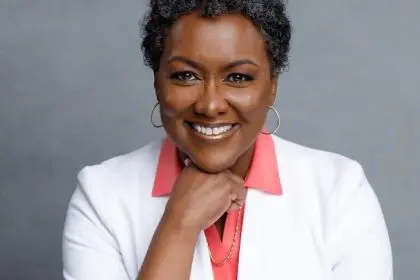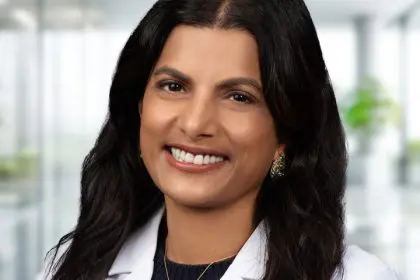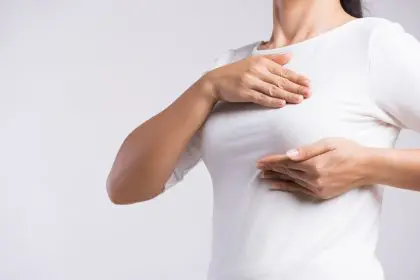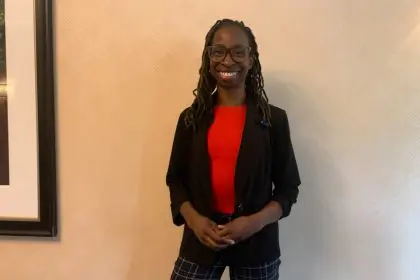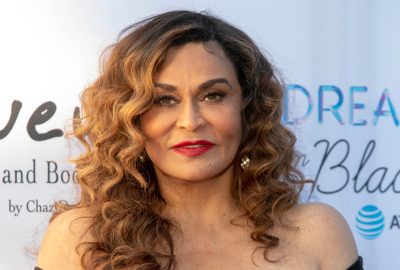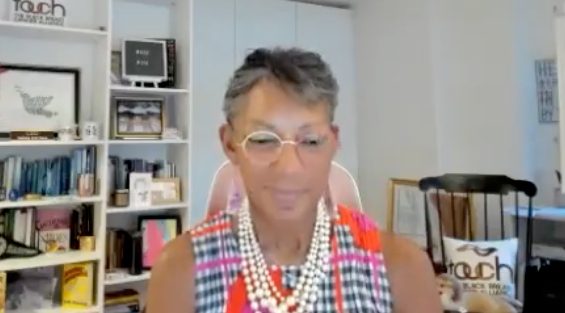
To kick off Breast Cancer Awareness Month, rolling out‘s Porsha Monique sat down with Ricki Fairley and Valarie Worthy, the co-founders of TOUCH, The Black Breast Cancer Alliance, for another episode in our Health IQ series. These courageous fighters prefer to call it Breast Cancer Action Month. Here are excerpts from the discussion, with the answers Ricki Fairley provided.
Let’s start by talking about why you started TOUCH.
We started our foundation three and a half years ago, right at the beginning of COVID, because we saw a need to talk about the science of breast cancer. Because I think, since it’s women, we have more advocacy groups and support groups than any other disease. But we saw this void in the space of science and wanted to create an organization that [was going to address] the science of breast cancer, of Black breast cancer, which is a different disease, and challenge the ecosystem, the pharmaceutical companies to do better by us.
So, you said no treatment could treat you. That being the case, how have you been in remission for 12 years?
Because God. God did it. I love that. This is my God’s job. So, I was your typical crazy mama, the breadwinner for my family, the rainmaker for my ad agency. And I went to the doctor, and my doctor found a lump on my annual checkup. Had I been doing self-exams, I would have found it, but I wasn’t. And I got diagnosed with stage three, a triple-negative — you know, four is metastatic, you’re dying, right? Then, I did a double mastectomy. I did six rounds of aggressive chemo at the time [and] six weeks of radiation. My doctor said, “Okay, Ricki, now you’re okay; you have no evidence of disease. Come back in two months, and we’ll scan you to see how you’re doing.” I went back in two months, almost exactly a year to the day of my [original] diagnosis. They found five spots on my chest wall. And my doctor said, “Okay, you’re not metastatic; you have about two years; get your affairs in order.”
And I said, “Well, I can’t really die right now. I have a daughter at Dartmouth, [and] I gotta pay tuition. So, you and God, you got to help me out with some drugs. We gotta get something because I gotta pay for my kid to go to college.” And so I went to the doctor, and my doctor had only had two cases of triple-negative breast cancer before, and both women died in nine months. So, she didn’t really know what she [was] doing. And nobody did at that time. So, I went to “Dr. Google.” And on the third page of Dr. Google, I found the Triple Negative Breast Cancer Foundation. I had to advocate for myself and do this work.
I found the TNBC foundation and called them, and they found me a doctor. I lived in Atlanta [then], and they found me one — she was probably one of about five doctors [in the country] researching triple-negative. And she was [studying] it in black women [and] starting to see these trends. So, she put me on two [experimental drugs] at the time. They’re now the standard of care. [The FDA approved them], but they were experimental for TNBC. I did a lot more chemo, and I didn’t die. And it’s been 12 years. This is my God’s job. God, let’s do this work. And it’s my purpose. I have, you know, three grandbabies, [ages] 2, 4, and 6. I got about 10 years before they get boobs to get rid of this stuff. And that’s my life, how I work every day.
You say your peace was nonnegotiable during your fight. It’s nonnegotiable now. How did committing to that peace contribute to your healing?
Not only did I have to get the cancers out of my boobs, but I also had to get the cancers out of my life. And I did. So, I divorced my husband of 30 years. I quit my business partners. I started my own business. I sold my big house in Alpharetta, Georgia, and I moved to my little one-bedroom condo on the beach — all on chemo, which is a little crazy. I wouldn’t recommend it. But I changed everything about my life, and I’m all about peace. I don’t drive in traffic. I only talk to people that bring me joy. And everybody else is a cancer; they gotta go, and even now, I will leave a room, hang up the phone, I’m out. Because peace is the most important thing to me. And I know my cancer was caused by stress. And we’re starting to see that in the research.
How do we work toward reducing the mortality rate in Black women?
We have to get into the clinical trials. We have to do this research. We have to be in it; [right now], we’re at 3% participation — that’s zero. So, we did a research study three years ago and even published a manuscript about it to understand why [we aren’t] in clinical trials. Why aren’t black women participating? And the No. 1 reason is … guess why? Because doctors don’t invite us. … Our research also showed that when the patient brought the conversation up to the doctor, they still walked away feeling ill-equipped with the information.



